
Often it’s not the best players who come through on the court when a team needs it during the most important time of the season. Here’s our look at some unsung or overlooked performances in the history of the NBA Finals. Listed in chronological order.
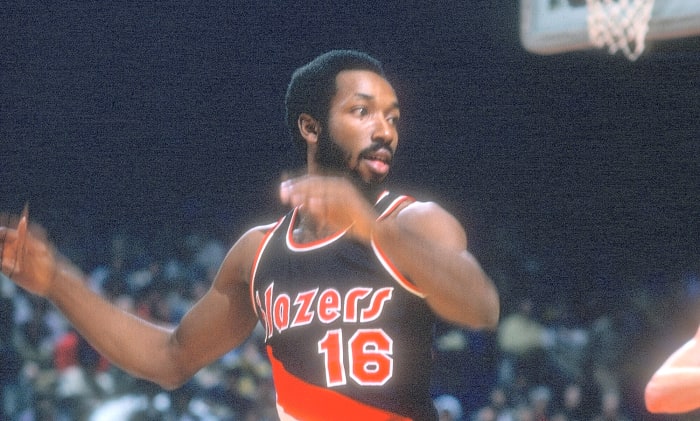
Focus on Sport/Getty Images
Though Davis might be best known for coaching several NBA teams, he did play 10 years in the league and won a world championship as a rookie with the Trail Blazers in 1976-77. That squad featured NBA legends Maurice Lucas and Bill Walton, but Davis averaged 12.8 points on 46.3-percent shooting, plus 5.3 assists as Portland won four straight Finals games against Philadelphia after losing the first two.
2 of 25
Lonnie Shelton, Seattle SuperSonics, 1979
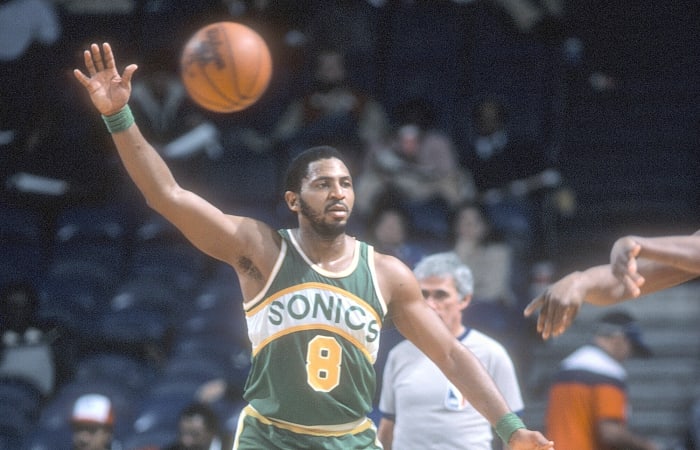
Focus on Sport/Getty Images
Shelton was an All-Star for Seattle in 1981-82, but in his third NBA season, and first with the Sonics, in 1978-79, he helped the franchise win a championship. Even with stars like Gus Williams, Dennis Johnson and Jack Sikma leading the way, Shelton came through in a big manner in the decisive Game 5 of the NBA Finals versus Washington. After failing to score 10 points in each of the first four contests, Shelton dropped 14 and pulled down eight rebounds in the clincher.
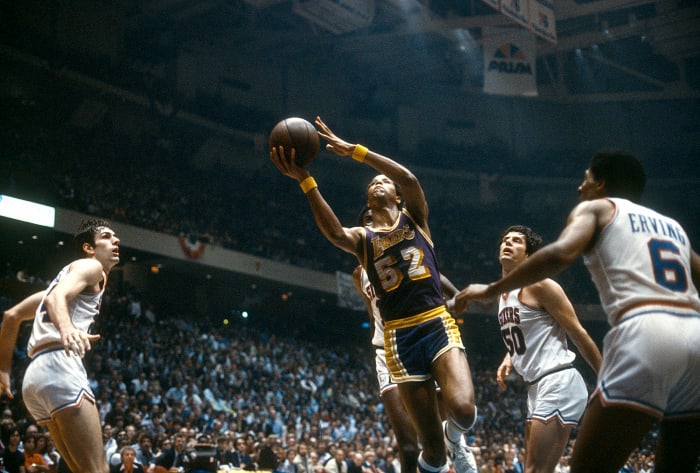
Focus on Sport/Getty Images
Wilkes was already a prized NBA veteran and an All-Star by the time the 1979-80 season rolled around. However, that was the season the Lakers began their run of Western Conference, and at times, NBA dominance, with Kareem Abdul-Jabbar and Magic Johnson becoming the faces of the franchise. During the 1980 playoffs, Wilkes averaged 20 points and delivered the performance of his life with 37 and 10 rebounds during the Lakers’ title-clinching 123-107 victory over Philadelphia in Game 6. Of course, Wilkes’ performance was overshadowed by the rookie Johnson’s 42-point, 15-rebound effort while starting at center for the injured Jabbar.

Focus on Sport/Getty Images
It’s still stunning to think that “Cornbread” Maxwell, a two-time NBA champion, whose No. 31 was retired by the mighty Boston Celtics, never made an All-Star Game during his stellar 11-year pro career. However, Maxwell, in his fourth NBA campaign, averaged 17.7 points, on 57-percent shooting, 9.5 rebounds, and 2.8 assists to outplay Celtics stars Larry Bird and Robert Parrish during the club’s six-game NBA Finals triumph over Houston to earn MVP of that series.
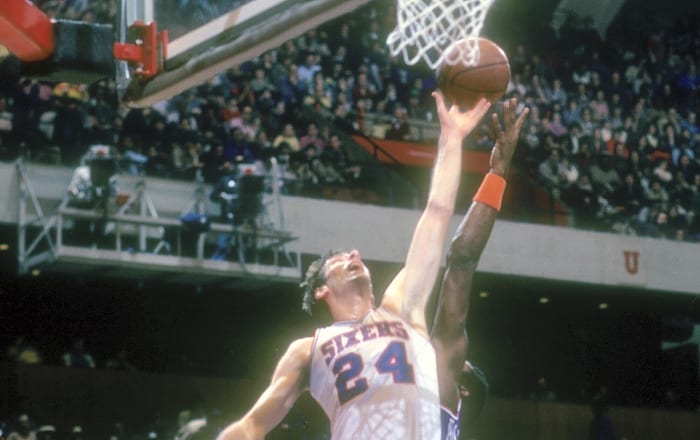
Focus on Sport/Getty Images
An ABA standout and four-time NBA All-Star during the late 1970s and into the ’90s, Jones did not start a single game during the 1982-83 season for Philadelphia. These Sixers were led by “Dr. J,” Moses Malone, Mo Cheeks and Andrew Toney. Jones, though, averaged 14.7 points on 63.3-percent shooting and played his exceptionally tough defense in the final three games of Philadelphia’s NBA Finals sweep of the Los Angeles Lakers. Jones would be named NBA Sixth Man of the Year in 1983.
6 of 25
Gerald Henderson, Boston Celtics, 1984
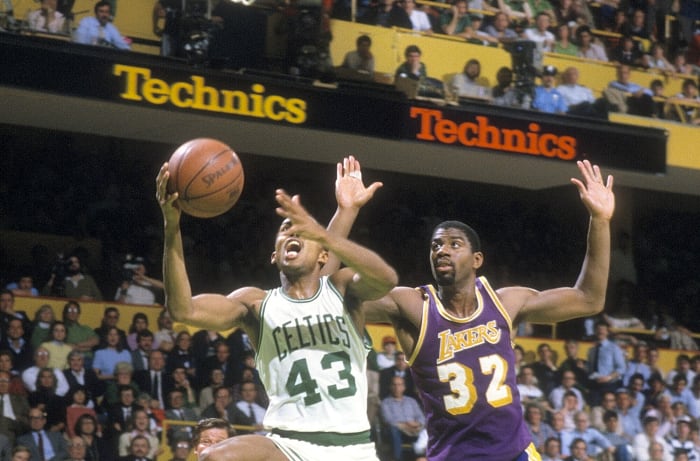
Focus on Sport/Getty Images
Henderson played in 88 playoff games during a 13-year NBA game, and totaled 631 points in those games. Perhaps none no bigger than in Game 2 of the NBA Finals against the Los Angeles Lakers, when, with 18 seconds remaining in regulation and Boston down two, Henderson stole a pass from Los Angeles’ Jame Worthy and made a tying layup. The Celtics eventually won in overtime to tie a series they won in seven games. Henderson, arguably the least-remembered member of the Celtics starting lineup from those outside the Boston fanbase, averaged 12.3 points during 1984 Finals.
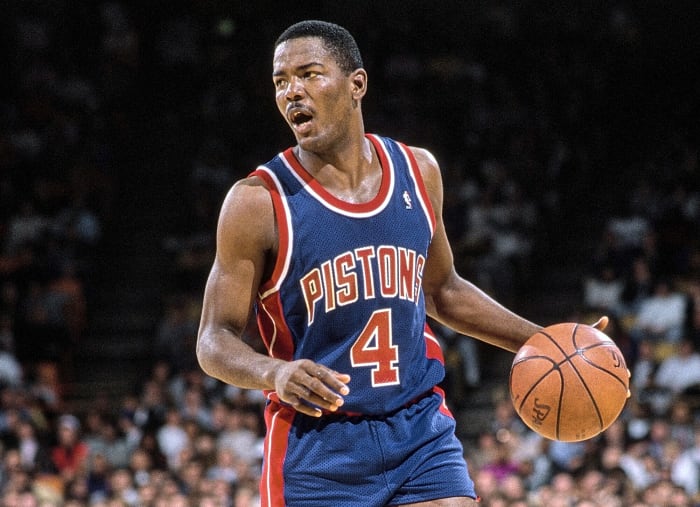
Mike Powell/Allsport/Getty Images
Dumars was building his way up to becoming an NBA star by his fourth NBA season, and he essentially broke out in 1988-89, averaging then-career highs of 17.2 points and 5.7 assists. However, Isiah Thomas and Bill Laimbeer were still the leaders of Detroit’s “Bad Boys,” who finally brought the franchise its first of two straight NBA titles. During the Pistons’ championship series sweep of the mighty Los Angeles Lakers, Dumars was nearly unstoppable, averaging 27.3 points on shooting 57.6 percent and six assists to be named Finals MVP.
8 of 25
Vinnie Johnson, Detroit Pistons, 1989; ’90
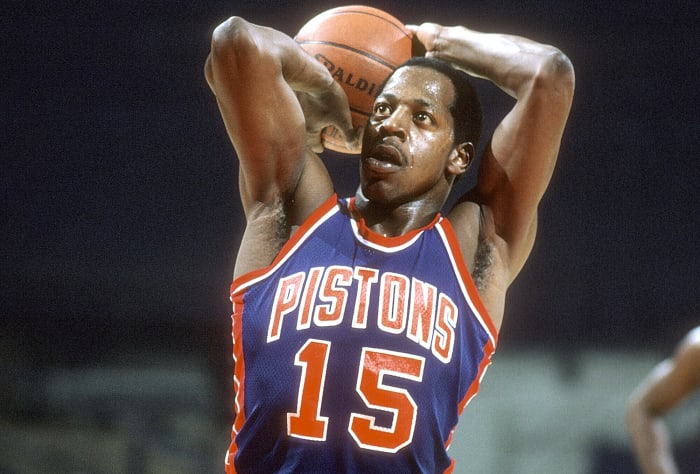
Focus on Sport/Getty Images
Known as “The Microwave,” for his ability to heat up instant offense off the bench, Johnson was at the tail-end of a solid 13-year NBA career by this point. But, he could still play and played a key role in helping the Pistons win those back-to-back league championships in 1989 and ’90. Though far from the main attraction on those teams, Johnson proved to be a force in both Finals series. In ’89, against the Los Angeles Lakers, Johnson averaged 17.0 points, while making 60 percent of his shots, after scoring 13.8 per game in the regular season. In 1989-90, Johnson averaged 9.8 points during the season, but 19.0, on 66.7-percent shooting, in the final three contests of Detroit’s five-game series win over Portland.
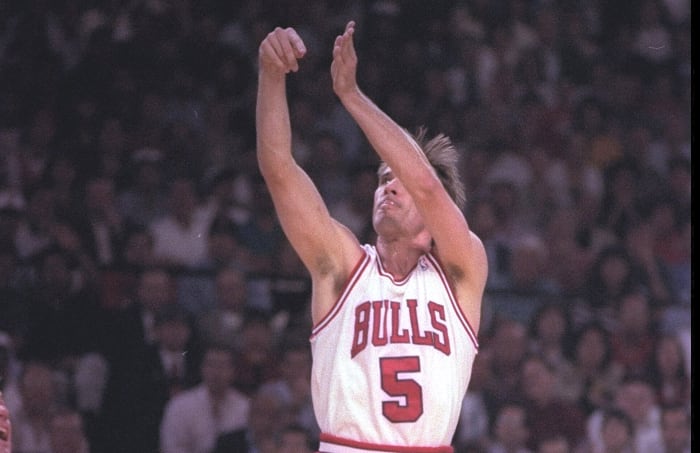
Jonathan Daniel/Allsport/Getty Images
In the penultimate season of his 11-year NBA career, Paxson had become a role player and key reserve for Chicago in 1992-93. However, Paxson’s value was truly on display during the Bulls’ NBA Finals series versus Phoenix in ’93. After scoring 12 points in a Game 5 road loss to the Suns, Paxson officially etched himself in Bulls’ and NBA lore when he nailed a 3-pointer with 3.9 seconds remaining to give Chicago a 99-98 lead that held up for the title-clinching Game 6 victory.
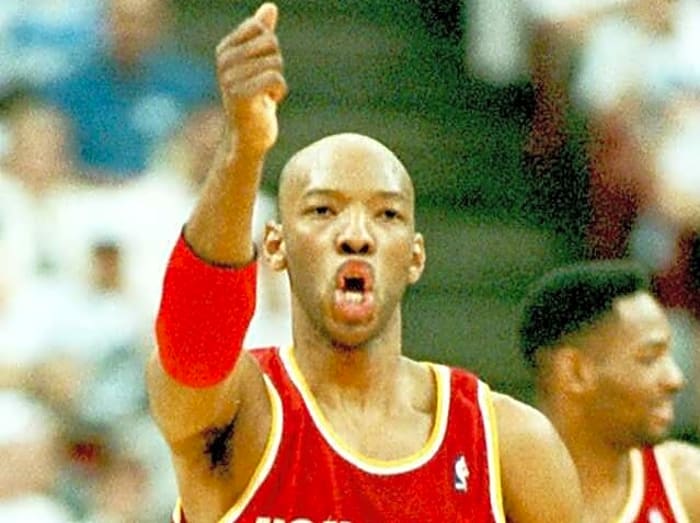
JEFF HAYNES/AFP via Getty Images
Cassell played 16 seasons in the NBA, was an All-Star (2004) and won three NBA titles. Including his first two seasons with Houston in 1994 and ’95. In the former, Cassell averaged 10 points during the Rockets’ seven-game triumph over the New York Knicks. He scored seven points in the final 32 seconds of a 93-89 victory at New York in Game 3, and finished with 13 on 4-of-6 shooting in Game 7. A season later, Cassell averaged 14.3 points during Houston’s Finals sweep of Orlando. Highlighted by a 31-point effort in Game 2.
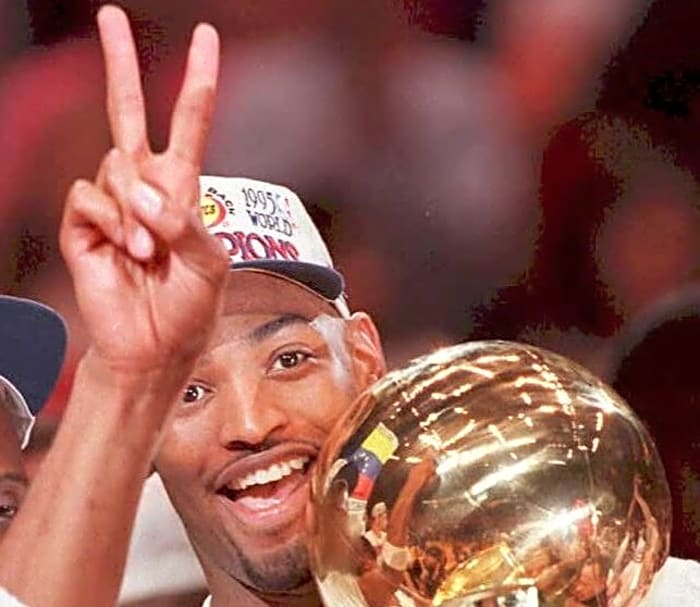
JEFF HAYNES/AFP via Getty Images
A proven winner, Horry was part of seven NBA championship teams during his 16 seasons in the league. A great big-game player, Horry won two titles with Houston, three with the Lakers and two more as a member of the Spurs. Though Horry averaged just 9.8 points in 37 NBA Finals games, he shot 43 percent overall and 40 percent from 3-point range in those contests. Horry was at his best during the four-game 1995 Finals for the Rockets against Orlando, when he averaged 17.8 points and 10.0 rebounds to often outshine Hakeem Olajuwon and Clyde Drexler.
12 of 25
Kenny Smith, Houston Rockets, 1995
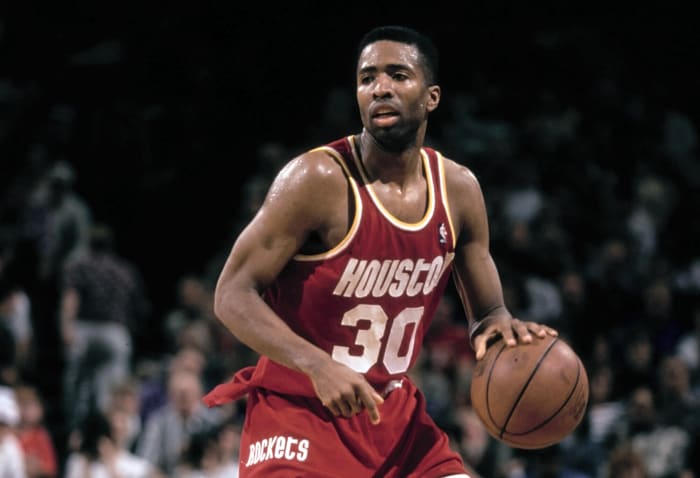
Steve DiPaola/NBAE via Getty Images
Sticking with the Rockets’ run to the 1995 title, Smith was another unsung postseason star on a team that featured big names like the aforementioned Olajuwon and Drexler. During that 1995 Finals sweep of Orlando, Smith set the tempo of the series for Houston by scoring 23 points, while making seven 3-pointers, and dishing out nine assists in the memorable 120-118 overtime victory, during which he hit a bucket to force the extra session.
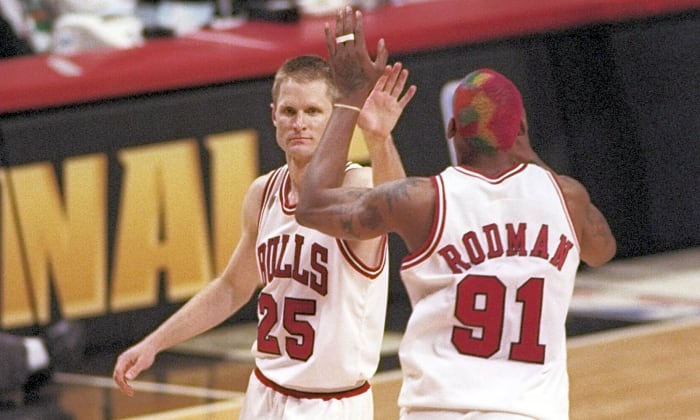
Jonathan Danie/Stringer/Getty Images
Kerr didn’t average more than 5 points apiece during the 1997 and ’98 playoffs with the Bulls. However, one of the league’s great bench players and 3-point shooters, certainly left his mark on NBA and Chicago basketball history during. In the 1997 Finals, it was Kerr’s tiebreaking 17-foot jumper with under 10 seconds remaining in Game 6, off a pass from a double-teamed Michael Jordan, that clinched the Bulls’ fifth world championship. Then in the late stages of Game 2 of the ’98 NBA Finals, also against the Jazz, Kerr returned the favor by recording the rebound of own miss, and dishing off to Jordan who converted a three-point play that led to Chicago’s victory that evened the series at 1-1, and one it went on to win in six.
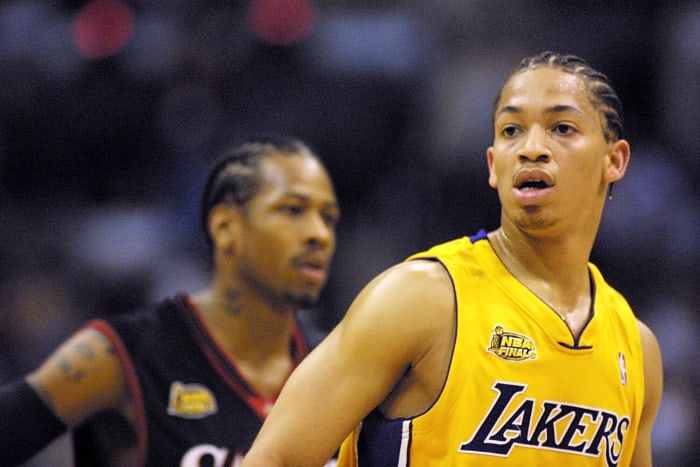
Jed Jacobsohn/Allsport/Getty Images
The consummate team and role player, Lue played in just 21 playoff games during an 11-year NBA career. He appeared in 15 of those for the 2000-01 Lakers, who beat the Philadelphia 76ers in five games of the NBA Finals. Lue totaled just 18 points during the series, but his forte has always been defense. And, when asked to check Sixers great Allen Iverson, Lue was a pest. Often frustrating Iverson, who might have delivered that infamous step over Lue in Game 1, but never seemed comfortable against the unheralded defender throughout the series that L.A. went on to dominate.
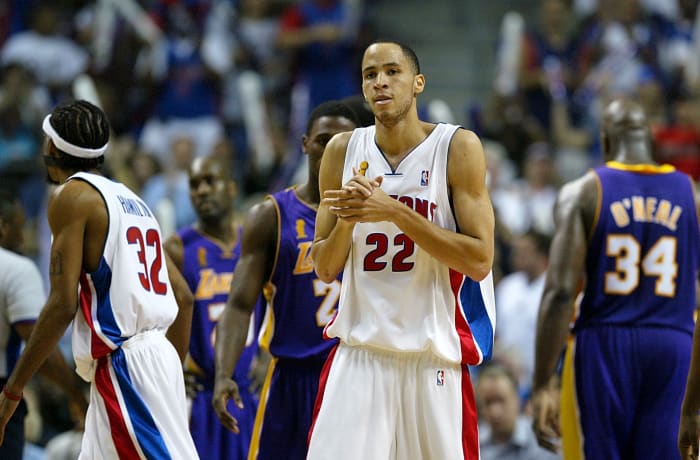
Jed Jacobsohn/Getty Images
As a rookie in 2002-03, Prince made a name for himself during the playoffs. A season later, he became a starter known for his defense while helping the Pistons’ resurgence in league prominence. During Detroit’s run to the 2004 NBA title, he averaged fewer than 10 points during the playoffs, but his stellar defense was a major factor in the team’s triumph. In Game 3 against the Los Angeles Lakers, Prince’s stout defensive effort was a big reason Kobe Bryant managed only 11 points and missed all four 3-point attempts in the Pistons’ 88-68 rout. The in the title-clinching Game 5, Prince also showed off his overall talent with 17 points and 10 rebounds.
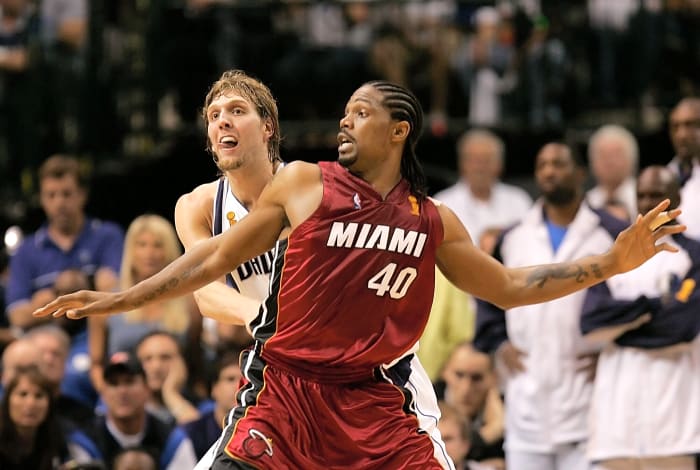
Ronald Martinez/Getty Images
In 2005-06, Haslem was in his third NBA season, and second as a starter for the Heat. A role player if anything else, Haslem was dependable defender and rebounder, and scored when needed. Perhaps none more so than in the Heat’s NBA title-clinching victory at Dallas in Game 6. Haslem didn’t score more than eight points in any of the previous five games in the Finals, but broke out for 17, plus 10 rebounds and two steals, in the deciding contest.
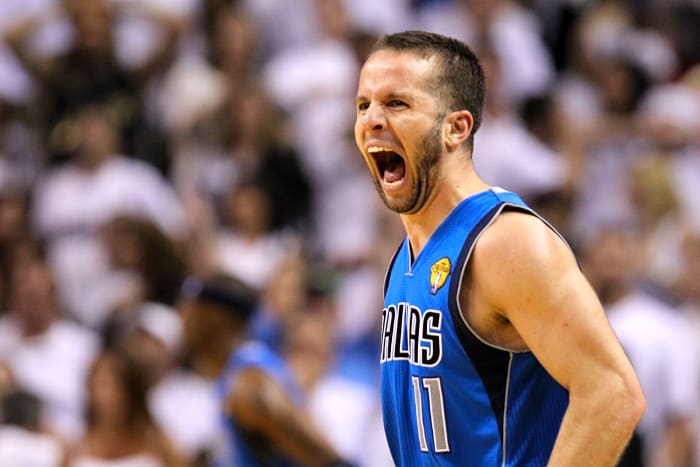
Ronald Martinez/Getty Images
In his fifth NBA season of 2010-11, Berea set career highs in games played (81), average points (9.5) and assists (3.9) while blossoming into one of the game’s top bench players. However, with the Mavs down 2-1 to Miami in the 2011 NBA Finals, Berea was inserted into the starting lineup as a potential spark for Game 3. Dallas didn’t lose again, with the upstart Berea totaling 32 points on 13-of-23 shooting and 10 assists in Games 5 and 6.
18 of 25
DeShawn Stevenson, Dallas Mavericks, 2011
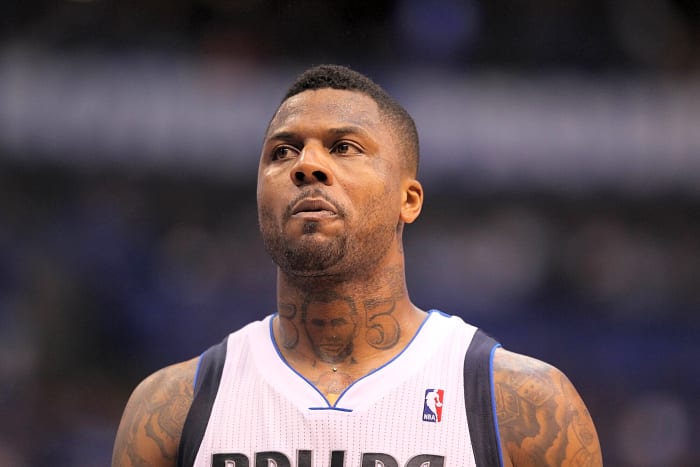
Matthew Emmons/Imagn Images
J.J. Berea was not the only unsung hero during the Mavericks’ run to the 2011 title. Nearing the end of a solid 13-year NBA career, Stevenson came through when needed during these Finals. He averaged just 4.5 points during the 2011 postseason, but scored 11 in the Game 4 victory against Miami, and went 13-of-23 from 3-point range over the six-game series. He went 3-of-5 from distance in the Mavs’ 105-95 title-victory clincher.
19 of 25
Mike Miller, Miami Heat, 2012
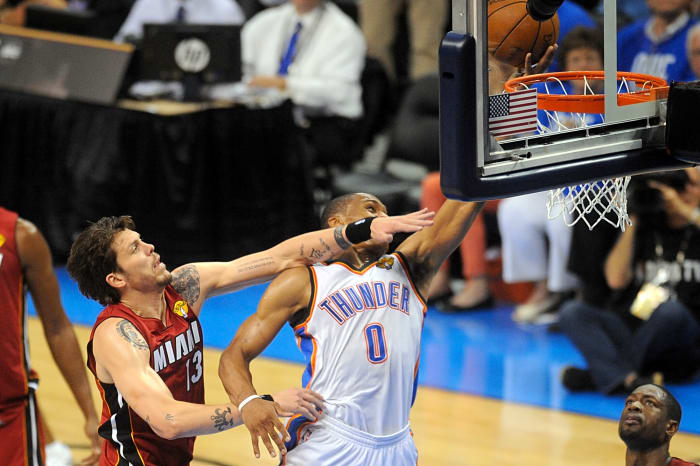
Mark D. Smith/Imagn Images
Miller enjoyed a quality 17-season NBA career. He was the NBA Rookie of the Year (2001) and the league’s Sixth Man of the Year (2006). However, Miller might be most remembered for his performance in Game 5 of the 2012 NBA Finals. Miller failed to make a 3-pointer in any of the previous four contests in the series against Oklahoma City, but set a Finals record with seven in eight attempts and finished with 23 points in Game 5 to help clinch the first of back-to-back titles for the Heat.
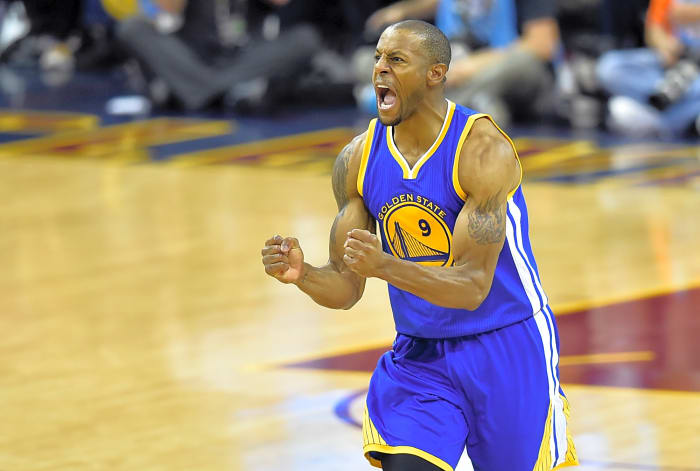
David Richard/Imagn Images
By the 2014-15 season, the veteran Iguodala was past his prime as a consistent scorer, but certainly a valuable asset off the bench, especially on the defensive end of the floor, in his second season with the Warriors. Iguodala was a major reason Golden State captured its first NBA title since 1975. In the Finals against Cleveland, Iguodala helped the Warriors overcome a 2-1 series hole by averaging 16.3 points, 5.8 rebounds and 4.0 assists, plus held Cavs superstar LeBron James to 38.1-percent shooting when both were in the game, as his team won in six games. Though Iguodala started the final three games versus Cleveland, he became the first player to win Finals MVP despite not starting a single regular-season contest.
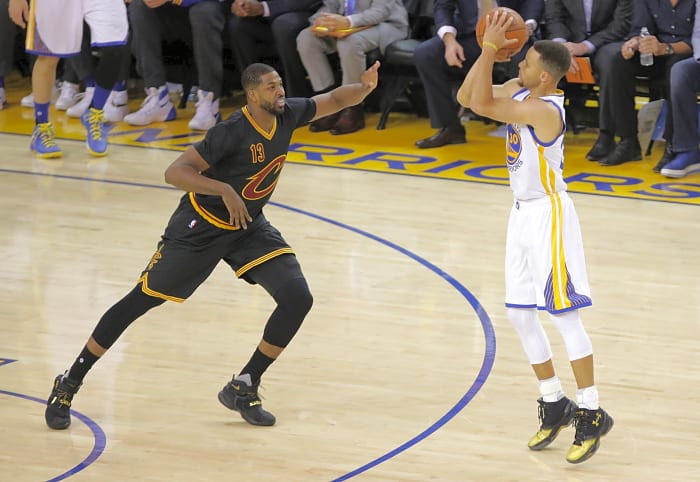
Kelley L Cox/Imagn Images
In his fifth NBA season, Thompson was no longer a full-time starter for the Cavs. However, he proved a valuable piece during the postseason, when he returned the starting lineup. After not scoring in double figures during any game in the Eastern Conference playoffs in ’16, Thompson averaged 10.3 points, on 63.6-percent shooting, to go along with 10.1 rebounds per game to help the LeBron James-led Cavaliers rally from a 3-1 hole and stun Golden State en route to the franchise’s first title.
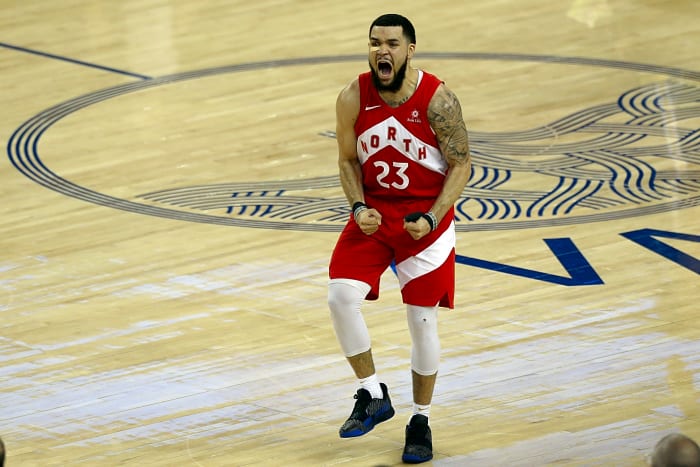
Cary Edmondson/Imagn Images
In just two years, VanVleet went from a D-League (now known as the NBA G League) star to an NBA champion. VanVleet broke out in his third NBA season of 2018-19 with Toronto, when he averaged 11.0 while mostly coming off the bench during the regular season. However, VanVleet blossomed into a Raptors legend during 2019 postseason. It started with some stellar play in the Eastern Conference finals versus Milwaukee, and continued when he averaged 14.0 points during the Finals against Golden State. The highlight for VanVleet came during the title-clinching Game 6, when he knocked down five 3-pointers and finished with 22 points off the bench.
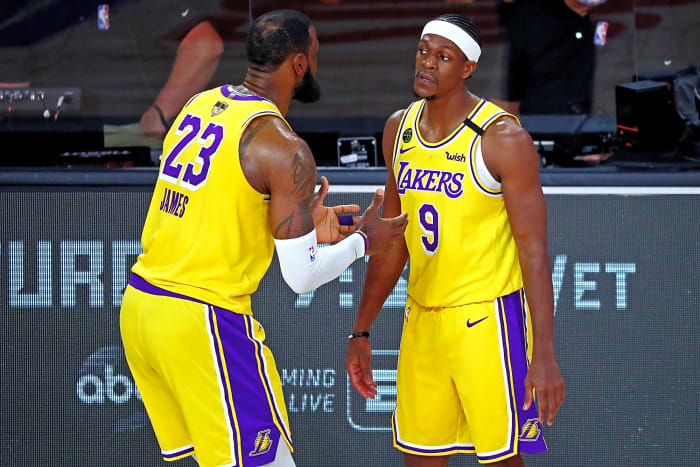
Kim Klement/Imagn Images
Rondo was a four-time All-Star and one of the great defenders in NBA history. When Rondo helped Boston to the 2008 world championship, he was a focal point of the club in just his second pro campaign. In 2020, with the Lakers, Rondo was an aging role player who found new life in the playoffs. In Game 2 against Miami, Rondo came off the bench to post 16 points and 10 assists to help the Lakers go up 2-0. Then in the title-clinching Game 6, Rondo scored 19 on 8-of-11 shooting.
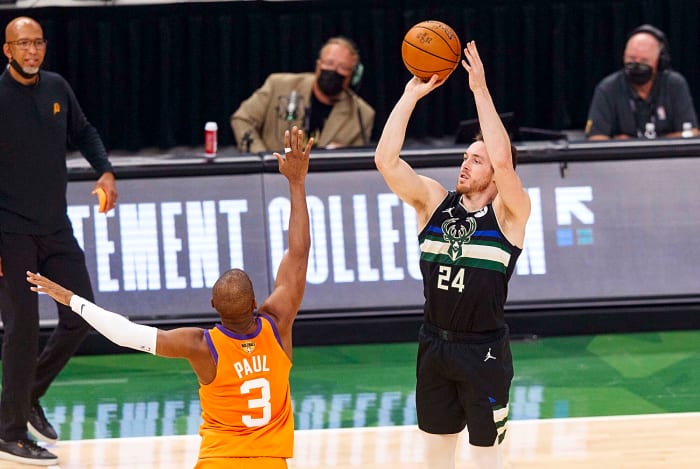
Jeff Hanisch/Imagn Images
Connaughton has long been a serviceable and dependable role-playing reserve since breaking into the league in 2015-16. Especially for the Bucks, where he’s become a fan favorite. During Milwaukee’s successful stay in the 2021 NBA Finals against Phoenix, Connaughton proved practically invaluable in helping the club win its first title since 1971. He averaged fewer than 7 points for the entire 2021 playoffs, but three times during the Finals, he scored 11 or more points, and shot 47.5 percent for the series. In Games 4 and 5 of a Finals that went six, Connaughton combined for 25 points — while shooting 7-of-13 from 3-point range — and 15 rebounds.

Jack Dempsey/Pool Photo/Imagn Images
As of 2024-25, Brown was playing for his sixth NBA franchise in eight seasons as a pro. However, his most successful season to date came in 2022-23, when he averaged a career-high 11.5 points as a key reserve during the Nuggets’ run to their first NBA title. Though Nikola Jokic, Jamal Murray and Michael Porter Jr. drew most of the headlines, Brown more than proved his worth during the five-game NBA Finals against Miami. He averaged 11.4 points and 4.4 rebounds. His 21 points in Game 4 came over 29 1/2 total minutes.



